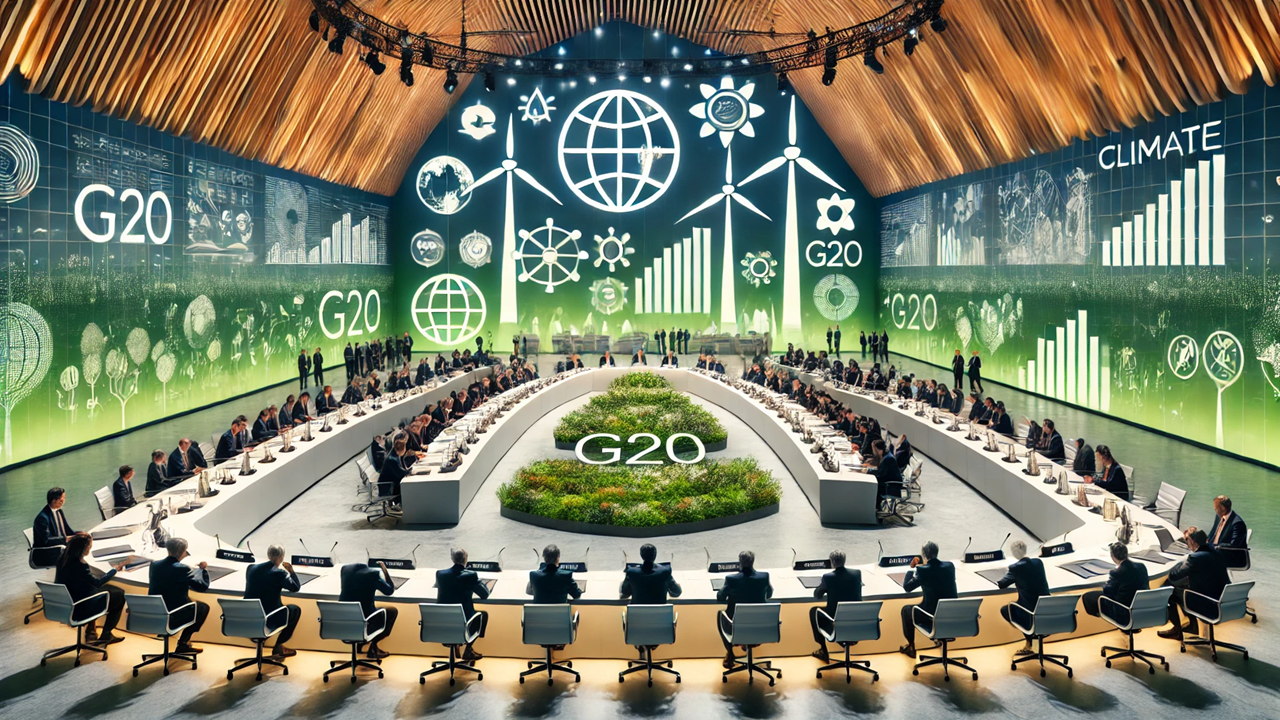G20’s Leadership in Green and Just Transitions: A Path to Global Sustainability
The report, The Role of the G20 in Promoting Green and Just Transitions, highlights the G20's pivotal role in combating climate change while ensuring social equity. It calls for cohesive climate policies, international cooperation, and actionable strategies to overcome challenges and drive sustainable innovation. The emphasis is on achieving both environmental and social goals through inclusive and transparent efforts.

G20 Champions Green and Equitable Transitions: A Report by OECD
In a world increasingly grappling with the devastating effects of climate change, the G20 has emerged as a critical player in steering global efforts toward sustainable and equitable development. According to the recently published report, The Role of the G20 in Promoting Green and Just Transitions, the 20 largest economies bear a significant responsibility—and opportunity—to lead the world in combating the climate crisis while ensuring social equity.
G20: The Driving Force for Green Transitions
As major contributors to greenhouse gas emissions, G20 nations are uniquely positioned to catalyze global action toward greener economies. The report highlights the necessity for cohesive efforts to align member states' policies with the Paris Agreement. By committing to climate resilience and carbon reduction, the G20 can set a global precedent for sustainable growth.
The report emphasizes that the transition must not only address environmental challenges but also mitigate the risks of economic and social disparity. This dual focus ensures that while nations strive for climate goals, they do not leave vulnerable communities behind.
The Call for Inclusive and Just Transitions
A key takeaway from the report is the importance of social justice in green policies. The transition to sustainable practices risks exacerbating inequalities if not managed inclusively. The G20 has been urged to prioritize measures such as worker retraining programs, robust social protection policies, and equitable resource allocation. These initiatives can safeguard workers displaced by technological or environmental shifts, ensuring no one is left behind in the race for a greener future.
Collaboration: A Global Imperative
One of the report’s strongest arguments is the need for global collaboration. The G20 must work collectively to implement uniform climate policies while fostering innovation through financial and technological cooperation. Investments in green infrastructure, coupled with accessible technology-sharing initiatives, are critical for building a united front against climate challenges.
Overcoming Barriers to Progress
However, the road to green and just transitions is fraught with challenges. The financial burden of transitioning weighs heavily on developing nations, political resistance often hinders progress, and the adoption of new technologies remains sluggish. The report highlights the need for transparent, equitable partnerships to tackle these barriers effectively.
Actionable Recommendations for a Sustainable Future
To navigate these challenges, the report proposes actionable strategies. Public-private partnerships can spur innovation and investment in green technologies. Additionally, multilateral financial institutions should play a larger role in supporting developing countries with resources to transition sustainably. Universal sustainability metrics and accountability frameworks are also suggested as essential tools for monitoring and achieving progress.
A Global Mission of Urgency
The report concludes with a powerful message: the time for coordinated, inclusive action is now. As the G20 prepares to shape its policies for the future, its leadership could serve as a global beacon for sustainability and equity. The stakes are high, but so is the potential for transformative change.
- FIRST PUBLISHED IN:
- Devdiscourse
ALSO READ
UK Strengthens Partnership with IDB to Foster Sustainable Development in Latin America and the Caribbean
ADFD and Bahrain: A Model Partnership for Sustainable Development
India and Sri Lanka: A Partnership in Sustainable Development
Lok Sabha Speaker Calls for Sustainable Development to Combat Climate Change
Australia Contributes AUD 13M to UNDP’s Core Resources for 2024, Strengthening Sustainable Development Efforts










